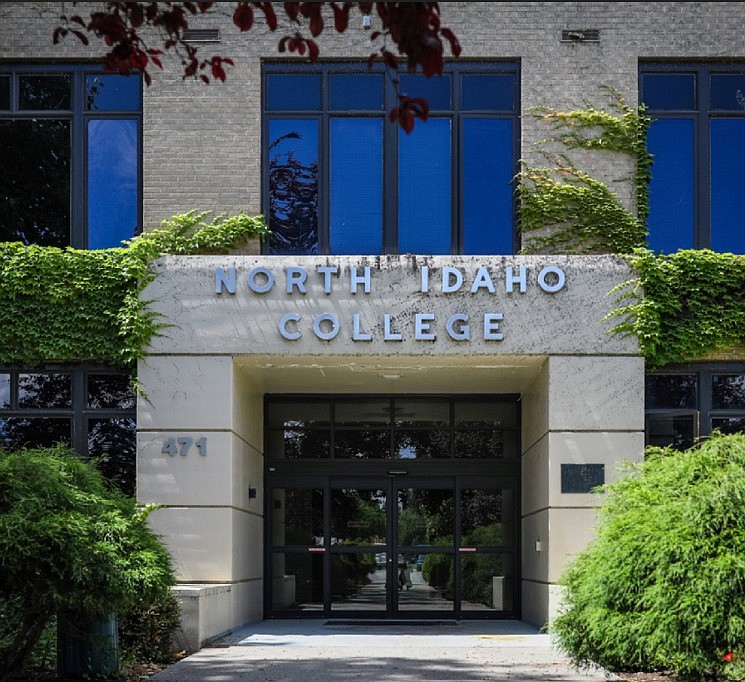Public NIC meeting canceled
COEUR d’ALENE — North Idaho College trustees canceled the public portion of a special meeting Tuesday afternoon that had been announced about six hours prior.
The board convened in executive session at 2:45 p.m. in the Driftwood Bay Room of the Edminster Student Union Building on NIC’s main campus.
Approximately 40 community members gathered upstairs for the public session scheduled to begin at 3:45 p.m. But around 4:20 p.m., the college announced the public session had been canceled.
Laura Rumpler, NIC’s chief communications officer, said the board adjourned the executive session in private at 4:56 p.m., ahead of a 5 p.m. Zoom workshop with the college’s accreditor, the Northwest Commission on Colleges and Universities.
Trustees left the closed meeting room through a back door and reconvened in the Meyer Health & Sciences Building for the workshop. NIC President Nick Swayne and other members of NIC’s administration reportedly attended, as well.
In the canceled open session, trustees were expected to take action on the draft response to NIC’s accreditor and a new policy regarding “president succession.”
The draft response was published Tuesday morning as part of the public meeting materials. A final version of the document, which is meant to explain to NWCCU why the college should not lose accreditation, is due Friday.
The document addresses concerns outlined by NWCCU in last month’s show cause letter, which center on board governance issues. Show cause is the last step before loss of accreditation.
Risks to accreditation include multiple active lawsuits against NIC, spurred by board action; frequent changes in leadership and uncertainty as to who is the college’s chief executive officer; declining enrollment, including strained dual enrollment partnerships; continued exodus of faculty, staff and senior administrators; significant proposed changes to NIC athletics programs without input from stakeholders; and risk of financial stress on the institution.
Many of these issues are directly attributable to the board’s actions in recent months, according to the draft response, specifically the decision to place Swayne on administrative leave for no disciplinary reason and replace him with a more expensive interim president.
The draft response asserts that the board and college have taken steps to mitigate these risks, such as complying with a court order to reinstate Swayne while his lawsuit seeking permanent reinstatement proceeds.
However, NIC is attempting to reverse course. Attorneys representing the college filed a motion for reconsideration in the case, asking Judge Cynthia Meyer to undo her decision to send Swayne back to work.
A hearing in the matter is scheduled for Friday.
The draft response revealed that NIC is expected to overspend by more than $1 million in fiscal year 2023.
Legal services are projected to cost $204,000 this year, $104,000 more than the amount budgeted.
The expenses for the president’s salary and benefits have increased by more than $260,000 because the college is paying two presidents — one active, one interim.
NIC budgeted $515,000 for liability and property insurance costs. The projected expense is $1.2 million, an increase of $685,000.
The draft response confirmed that trustees fired former NIC President Rick MacLennan against the advice of its insurance carrier, the Idaho Counties Risk Management Program.
The insurer later dropped NIC, reportedly citing MacLennan’s wrongful termination lawsuit as one of several reasons for the decision. On the open market, NIC’s insurance costs have increased from $321,000 per year to $1.1 million.
The new policy also included in Tuesday’s meeting materials addresses absences of the college president and requires the president to name at least two members of the cabinet who can “assume operation of the college in event of sudden loss of president services.”
If any of the individuals designated by the president are unable or unwilling to serve as acting president, the board may choose someone else and determine that person’s compensation. The policy specifies that an acting president shall not be precluded from consideration for permanent appointment to the presidency.
The policy states that the board and president “shall mutually decide upon the schedule for return to the position.”

